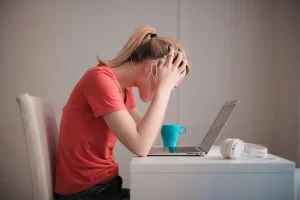Creative mental health is an important part of overall wellness and can provide a variety of positive benefits for people who take part in creative projects. Creative mental health involves finding ways to express yourself through art or project-based activities that can help you relax and help you find ways to manage life’s difficulties. Recent research has revealed that doing creative projects can reduce anxiety, increase a sense of well-being, and even help improve physical health.

When you engage in a creative project, the act of making something activates many areas of your brain. The process of creating stimulates creative thinking, encourages self-expression and even provides distraction from stress and anxiety. Studies have shown that creative activities, such as art, writing, or music can improve cognitive functioning and increase positive emotions. Creative projects can help us to work through strong emotions like anger, fear, and sadness, as well as allow us to express our creativity in a constructive way.
When engaging in creative projects, it is important to be mindful of the process and listen to your own thoughts and emotions as you are creating. Art, for example, has been found to be a powerful form of creative self-expression that can provide insight and clarity when creating. Creativity can also be expressed through words, allowing you to share your stories and experiences in a meaningful way. Taking part in creative mental health activities can also encourage us to take risks, pushing us to think outside the box and explore alternative solutions to life problems.
Creative projects can encourage the development of new skills and give us an outlet to explore and experiment. No matter what your creative outlet, the act of creating can foster a sense of accomplishment and pride. Working on creative projects, even for a short amount of time each day, can provide us with a sense of balance and help us feel focused and organized in our lives.
Finally, creative mental health can help us to socialize and connect with other people. Participating in group activities, such as painting classes or creative writing workshops can provide us with a sense of belonging and support. Talking about our creative projects gives us the opportunity to share successes and receive encouragement from our peers.
In conclusion, creative mental health offers a variety of benefits that can improve emotional and physical health, as well as provide us with a sense of purpose and fulfillment. Taking part in creative projects can help us to relax, express our feelings constructively, and push us to think outside of the box. Creative activities can provide us with a distraction from stress and can even give us an opportunity to interact and socialize with others. Engaging in creative activities, even for a few minutes each day, can be incredibly beneficial in helping us manage our mental health






